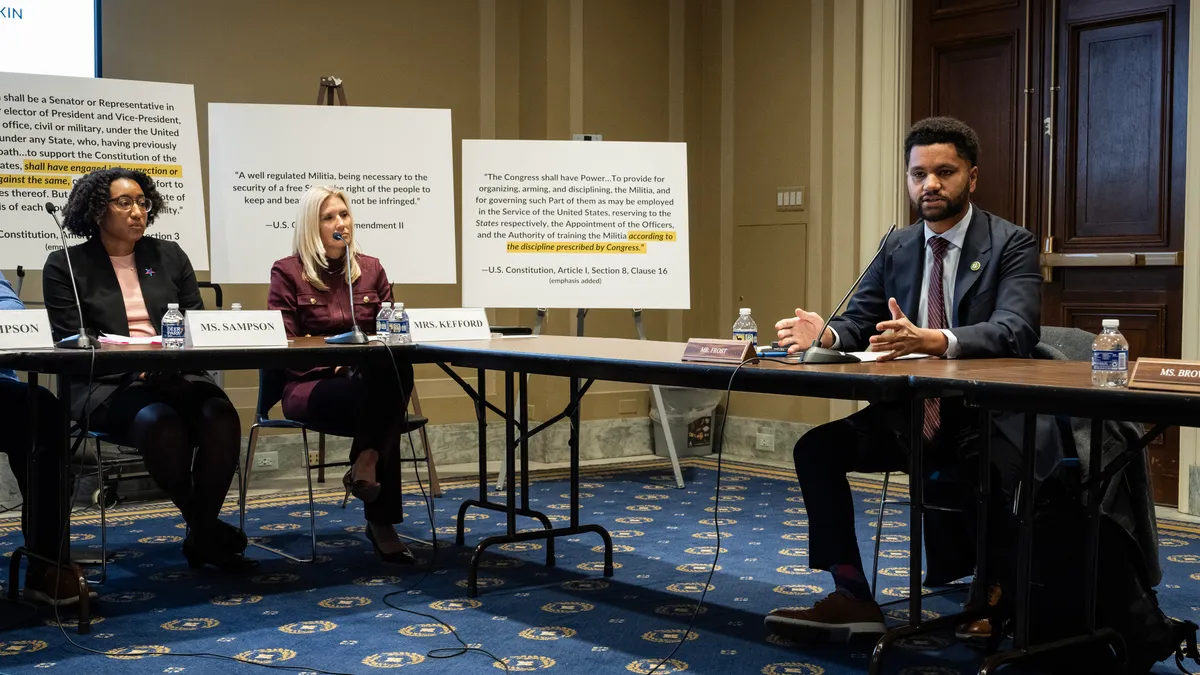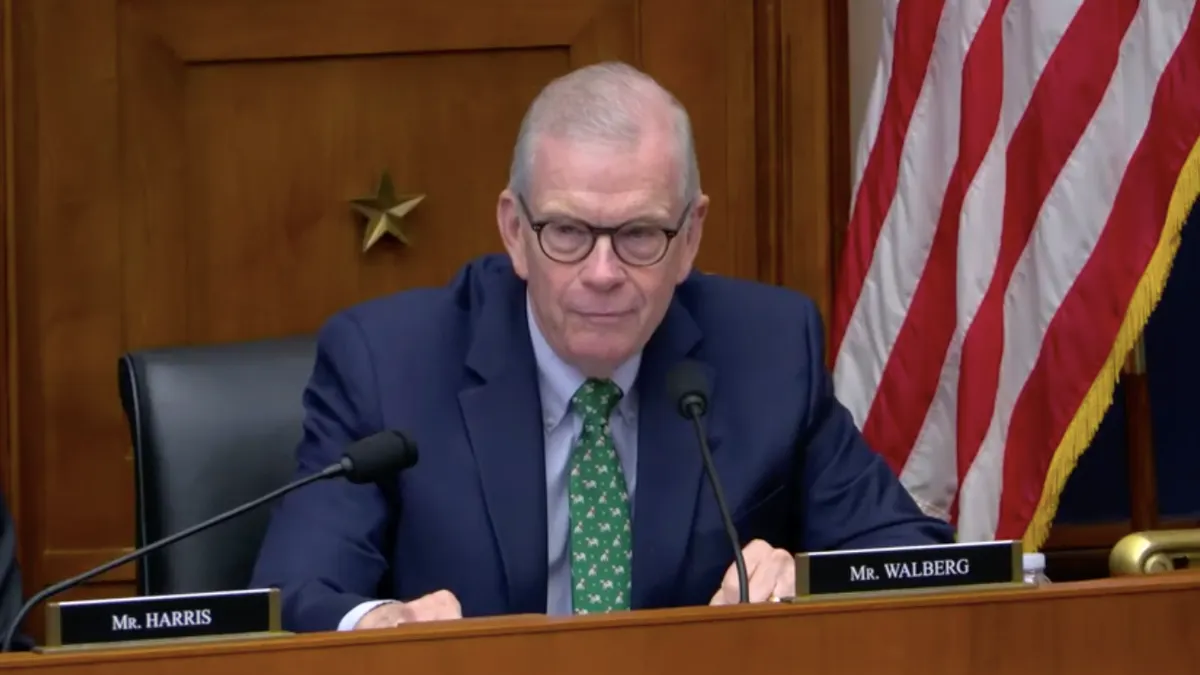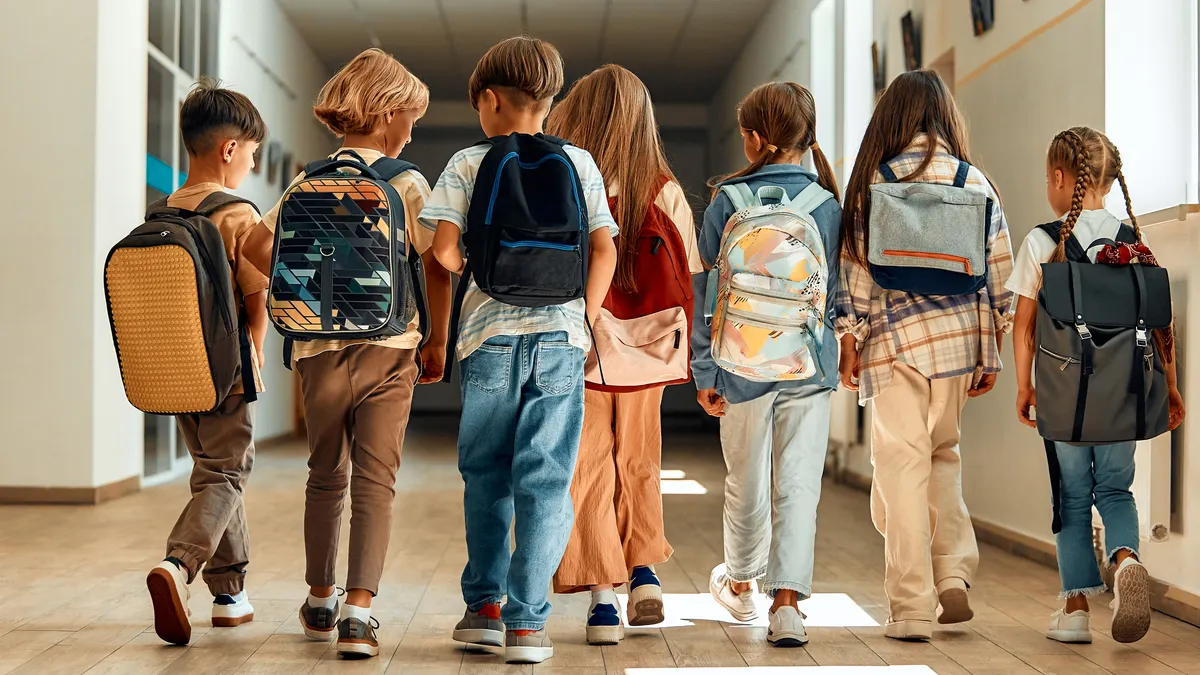Seeking solutions to "the nationwide gun emergency that's taking place," Democratic members of the House Committee on Oversight and Accountability late Monday hosted a roundtable with educators and advocates.
The meeting took place just days after the tally of school shootings for 2023 surpassed last year's record high, according to the K-12 School Shooting Database.
However, "gun violence solutions are well within our reach," said Rep. Jamie Raskin, D-Maryland. He was joined by Rep. Jared Moskowitz, D-Florida. Moskowitz represents the state's 23rd congressional district, including Parkland, where 17 were killed and 17 injured in a 2018 mass shooting at Marjory Stoneman Douglas High School — one of the nation's deadliest shooting incidents.
Here are four takeaways from the roundtable.
Gun violence includes — but is more than — mass shootings
Experts invited to the roundtable agreed with the representatives that while the problem includes mass shootings, the issue of gun violence prevention is a much broader issue.
"Mass shootings account for 1% of gun violence," said Rep. Maxwell Frost, D-Florida, who also co-hosted the roundtable. "I don't say that to diminish mass shootings, I say that so that people can really recognize how huge this issue is and how many lives it takes on a daily basis." Frost said the 2012 mass shooting that took the lives of 20 children and six adults at Sandy Hook Elementary School in Connecticut pushed him to enter politics.
Mariah Cooley, a board member at March for Our Lives, said that while gun violence disproportionately impacts Black people and communities of color, these populations are often sidelined from the conversation.
"This is the devastating reality for far too many young people and far too many young people of color," said Cooley, who lost two peers, including one cousin, to gun violence by the time she was 16. "I see what the violence looks like every day, because that's the environment I grew up in."
Community-based outreach is key
Because gun violence can be a community-based problem, solutions should also be community-based, advocates at the roundtable said.
When working with local law enforcement, it's important to find partners that the community will appreciate and support, said James Timpson, managing director of community violence initiatives at Roca Impact Institute. The Roca institute advocates for community violence intervention through improving mental health.
Cooley added that it's important to support local groups that routinely work with gun violence survivors and perpetrators.
"They know these people. They know these streets. They know the targeted groups that tend to have those acts of violence. They speak to them," said Cooley. Those are the groups that "need funding that don't often make it to the national news."
Solutions must be ongoing
Speakers at the roundtable stressed the need for both ongoing funding and support — regardless of the type of gun violence and the different communities impacted.
"I can tell you that it's been almost six years since the most horrific day in our school’s history, and the tragedy still impacts our school community very profoundly, and our recovery efforts are still actively underway," said Michelle Kefford, principal of Marjory Stoneman Douglas High School, who has led the school since July 2019.
Because the impacts of gun violence are ongoing, she said, so too should be the financial support from lawmakers.
School Emergency Response to Violence, or Project SERV, for example, is a federally funded grant program meant to provide short- and long-term education-related services to help school districts recover from violent or traumatic events. The U.S. Education Department has often disbursed these funds to districts in the wake of mass school shootings.
However, that funding is still split among all kinds of events, including natural disasters.
"With so many shootings, there is simply not enough state or federal recovery funding and resources to go around for all of these shattered schools," said Kefford. She said funding at current levels "doesn't go very far and will not meet the current or future needs" of schools.
"We need to have resources all along, before tragedies and after tragedies," she added.
Holistic efforts needed
Not only should gun violence prevention efforts be ongoing, but they should be holistic, said the panelists. Quality of and access to education, food and housing all play a part in preventing gun violence.
"That means, what kind of schools are these children going to? What kind of teaching are they receiving?" said Cooley. "When people don't have access to those basic needs, they resort to crime."
Expanding alternative education like apprenticeships and vocational education could go a long way to prevent violence before it occurs, according to Rep. Dan Goldman, D-New York, a former assistant United States attorney in the Southern District of New York.
Recalling cases he saw as an attorney, Goldman said, "There were minor offenses at early ages that, if we could have much more upfront resources and diversion programs, these people could not have ended up in a federal court."



















